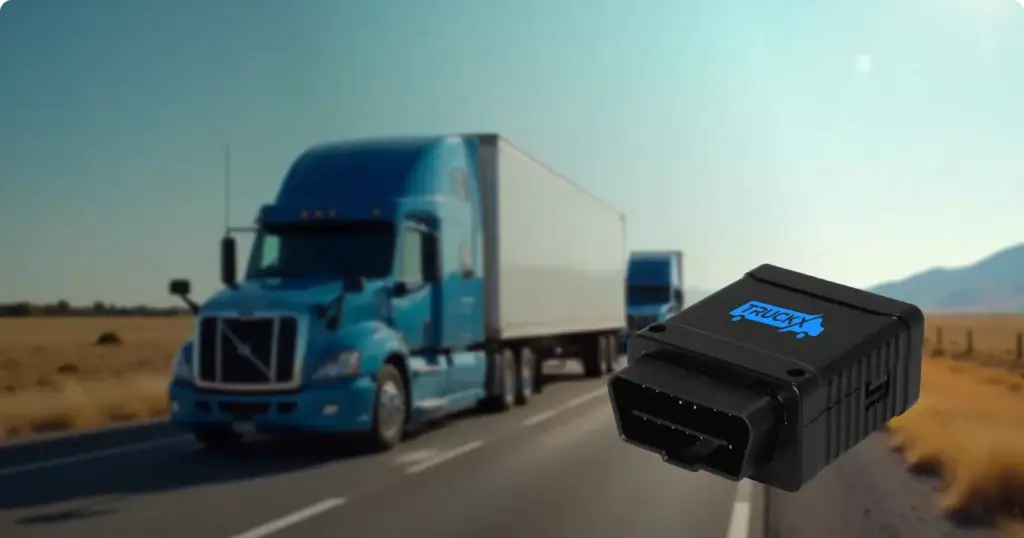Imagine trailers with the capacity to drive themselves to destinations while the drivers relax. Such a future may not be too far away. The future of freight and fleets may soon see autonomous freight technology becoming more common. Artificial intelligence is touted to play a massive role in the trucking industry. People are investing a lot into this idea, and many self-driving trucking startups will grow into publicly traded companies soon. They’ll move actual freight across the states. There may even be humanless tractors one day.

1. Smart Trailers Will Make Trucking More Efficient
A smart trailer will collect data about its current state. It will know its systems, its operation, health, status, and other details at any given point in time. Trucking’s future is safer, more efficient, profitable, and has immense potential to make its fleets smarter. It can communicate all this information to the fleet operator comprehensively with a complete set of data. A smart trailer will have more than just telematics. That’s what will help make the entire system more reliable.

2. Smart Trucks Are Safer
These trucks are powered by supercomputers and will be moving freight across the country. Technologies to assist drivers on commercial and passenger vehicles will be more prevalent each passing year. They’ll create the potential to reduce road crashes caused by human error. That would be extremely helpful as annually, there are tens of thousands of deaths and millions of injuries that afflict people on the road. Truck accidents can be devastating, and if smart truck technology can stop those then it would be the best solution possible.
3. Easier To Keep Assets Safe
The smart trailer will heighten the safety of your trucks easily. They’ll also provide you with better visibility of how you’re running that asset. In many ways, these systems will build on asset tracking and management systems and processes that trucking companies use today. These systems help you maximize your utilization of the assets you own like trailers, containers, reefers, and dumpsters. Extending that intelligence, smart systems will help keep the trailers operational and improve the overall efficiency of asset investments. That’s because of the technology that makes it easier to track your goods, ensure your driver’s safety, keep a check on whether the trucks are at the right temperature in case of delicate goods, and more.

4. Heightens Monitoring Capability
Smart technology will help you to monitor more than just brakes, tires, lights, weight, doors, and other such features. Camera technology helps immensely and it’s going to keep growing over the next few years. There will be OEMs without cameras, and other such technologies that will help you keep an eye on your goods. All these will aid you in monitoring your precious goods as carefully as possible. Smart tools and systems will keep track of the trailers and the condition they are in, like temperature and humidity. You’ll be helped every step of the way with data such as how many times the vehicle has stopped, its location, and more.
5. Better Security
Thanks to technology like ultrasonic sensors, rear-view cameras, and other such devices, trailers of the future will collect data that would give the viewer a 360-degree view around their vehicle. That will help fleet owners look after their trailers as well as the rest of their vehicles. It will heighten security and help with supply chain constraints by ensuring your property’s safety. Systems such as a rear-view camera would help fleets attract new drivers.
What Can You Expect?
You can look forward to there being more sensors connected to smarter systems. These will support the tires and air systems, which will become more advanced. Tires will have smart-sensing technology. That will be thanks to embedded technology. There are a few startups that have autonomous trucks and their perspective is to have trailers that would operate 24/7 at peak safety.
The prediction is that in a few years, there will be trailers harnessed with retrofits that will be packed with technology. That will include cameras, sensors, ultrasonic technology, lidar, and radar. These will be designed to fit your needs, post which you can install them and plug them in. This will just be the beginning as there will be many things that will pop up. That would include IoT and other such technology that would. Plus, the trailer of the future would stay strong for at least 20 years!
Something else to look out for would be the way this technology would help optimize the vehicle’s performance, reduce costs, and create more efficient operations. These would be very helpful from an operational standpoint. They would create profoundly efficient processes for the fleet’s organization across many departments. Predictive analytics, artificial intelligence, and machine learning all have the power to make fleets more profitable and productive.
What Is The First Step?
Several technologies will help the smart trailer come into existence. That includes a cloud dashcam, with its live video, defend false claims, monitor driver behavior, and live GPS tracking. Asset trackers, Bluetooth ELDs, Wired ELD tablets, and IoT sensors will also play a massive role in enabling the smart trailer. Therefore, if you’re interested in being a part of this revolution, the first step would be equipping trucks and trailers with the above-mentioned technology. When doing so, ensure you’re partnering with the best in the business (like us) so that you built the base that allows you to gradually shift to the most cutting-edge technology when the time comes.









